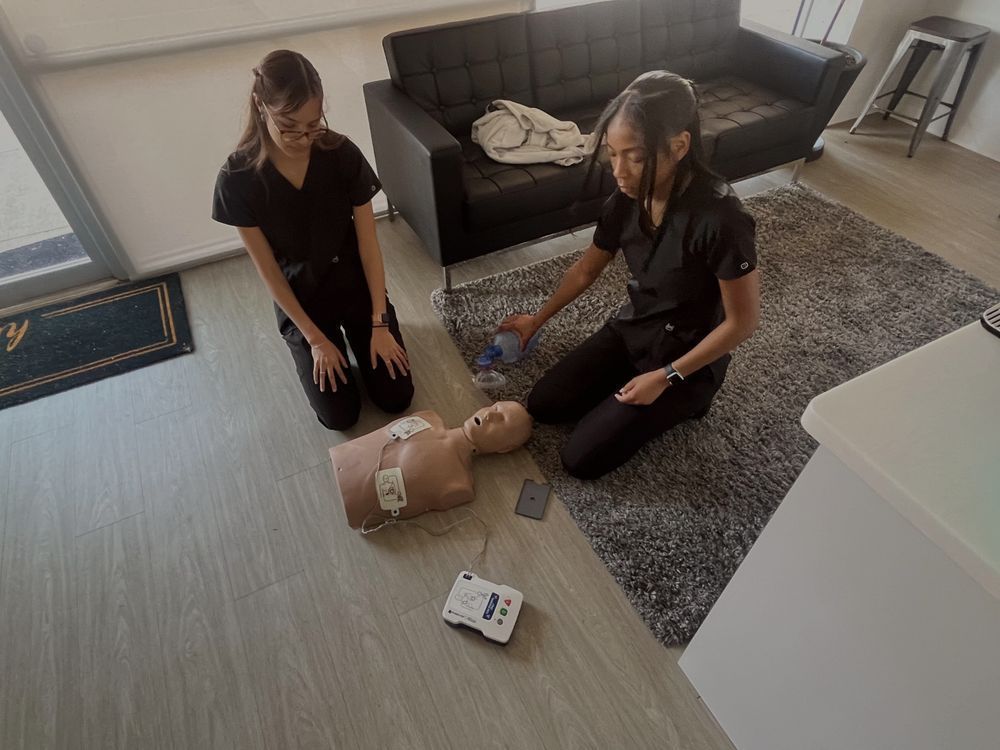What It’s Like to Work as a Medical Assistant in a Hospital Setting
What It’s Like to Work as a Medical Assistant in a Hospital Setting
In the world of healthcare, medical assistants (MAs) are known for their versatility and ability to juggle both clinical and administrative responsibilities. While many MAs work in outpatient clinics or private practices, some choose the fast-paced environment of a hospital setting. Hospitals offer a different kind of experience—often more demanding, but equally rewarding for those who thrive under pressure and enjoy working on a large team of professionals.
Working in a hospital gives medical assistants the chance to interact with a wide variety of patients and medical staff. The level of responsibility and intensity may be higher, but so are the opportunities for growth, learning, and making a real difference. If you’re considering becoming a medical assistant or transitioning to hospital work, it’s important to understand what sets this work environment apart. Let’s explore six notable features of working as a medical assistant in a hospital setting.
- Fast-Paced and High-Volume Work Environment
Hospitals operate 24/7, and the flow of patients rarely slows down. As a medical assistant in this setting, you’ll often find yourself moving quickly from task to task. Whether it’s prepping a patient for surgery, assisting a nurse with vitals, or restocking exam rooms, the demand for speed and accuracy is constant.
This fast-paced environment can be exhilarating for individuals who enjoy staying busy and being on their feet. You may assist in emergency situations, support multiple departments, and help maintain order amid controlled chaos. It’s a dynamic experience that requires quick thinking, adaptability, and a calm demeanor under pressure.
- Exposure to a Wide Range of Medical Specialties
One of the most enriching aspects of working in a hospital is the exposure to different medical specialties. Unlike a private practice where your tasks might revolve around a single field, hospitals give you the opportunity to assist with cardiology, orthopedics, pediatrics, surgery, and more—all within a single shift.
This kind of variety helps medical assistants build a broader clinical skill set and gain insight into areas they might want to pursue in the future. It’s also a great way to determine if a certain specialty suits your interests, whether you plan to remain an MA or further your healthcare career.
- Greater Collaboration with Medical Teams
In a hospital, medical assistants are part of a much larger healthcare team. You’ll work side-by-side with doctors, nurses, radiologists, respiratory therapists, and other specialists. This level of collaboration can enhance your communication skills and improve your understanding of patient care workflows.
Being immersed in a team-oriented environment also builds a strong sense of camaraderie. You’ll often rely on others to accomplish time-sensitive tasks, and they’ll rely on you. This mutual support creates a strong professional bond and reinforces the idea that every role—no matter how big or small—contributes to saving lives.
- Access to Advanced Equipment and Procedures
Hospitals are typically equipped with more advanced diagnostic tools and treatment technologies than smaller clinics. As a result, medical assistants in this setting may become familiar with equipment such as EKG machines, ventilators, and mobile imaging devices. They may also assist in preparing patients for procedures like MRIs or surgeries.
This exposure can be an exciting challenge for MAs eager to learn. While some tasks may require additional on-the-job training, the hospital setting offers a unique opportunity to witness—and sometimes assist with—complex medical procedures that wouldn’t be part of a typical outpatient role.
- Structured Shifts and Rotating Schedules
Unlike a 9-to-5 clinic job, working in a hospital often means working in shifts—morning, evening, overnight, and sometimes weekends or holidays. These rotating schedules ensure round-the-clock patient care but also require flexibility from the staff. Medical assistants must be prepared for varying sleep patterns and changing work routines.
For some, this structure can be a benefit, especially if they prefer having weekdays off or enjoy the energy of night shifts. Hospitals also tend to offer overtime and shift differentials, providing opportunities to earn more. While it may take some getting used to, the structured rotation of shifts is an integral part of hospital life.
- Emotional Resilience and Patient Impact
Working in a hospital means dealing with patients in some of their most vulnerable moments. Medical assistants may encounter everything from joyful births to medical emergencies or end-of-life care. These experiences require a high level of emotional resilience and empathy.
However, this is also what makes hospital work so meaningful. You’re not just performing tasks—you’re offering comfort, clarity, and care to people when they need it most. Many MAs report that the emotional rewards of hospital work far outweigh the challenges. Being part of a team that helps save lives can provide a profound sense of purpose.
A Hospital MA Career Can Be Challenging—and Incredibly Rewarding
The hospital setting brings intensity, diversity, and opportunity to the medical assistant role. It’s ideal for those who want to grow their clinical knowledge, work as part of a larger healthcare team, and stay constantly engaged throughout their shift. While the environment may not be for everyone, those who embrace the fast pace and complexity often find it deeply fulfilling.
If you’re ready to take your first step toward becoming a medical assistant and want real-world, hospital-relevant training, consider enrolling at Pulse Medical Assistant School. Our online-first, 16-week medical assistant program combines the flexibility of virtual coursework with intensive, in-person labs that prepare you for real patient care. Get the skills, confidence, and experience you need to thrive in a hospital setting and beyond.
You're only a few months from the medical assistant career you deserve.
